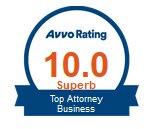Best ADR Mediation & Arbitration Lawyers in Minnesota
Share your needs with us, get contacted by law firms.
Free. Takes 2 min.
Or refine your search by selecting a city:
List of the best lawyers in Minnesota, United States
About ADR Mediation & Arbitration Law in Minnesota, United States
Alternative Dispute Resolution (ADR) covers processes like mediation and arbitration where parties resolve disputes outside of traditional court litigation. In Minnesota, ADR is widely used in civil, family, employment, and commercial disputes. Mediation involves a neutral third party assisting the disputing parties in reaching a voluntary agreement, while arbitration results in a binding or non-binding decision by a neutral arbitrator. The state encourages ADR to reduce court burdens, save time and costs for parties, and foster more amicable resolutions.
Why You May Need a Lawyer
You may need a lawyer with ADR expertise in Minnesota for a variety of reasons. Common situations include:
- Contract disputes requiring fast, private resolution
- Family law matters like divorce, custody, or property division
- Business disagreements between partners or companies
- Employment disputes such as wrongful termination or discrimination
- Personal injury claims where both sides prefer to avoid trial
- Reviewing or drafting ADR clauses for contracts
- Ensuring your rights are protected during mediation or arbitration sessions
- Representation at hearings and settlement discussions
- Challenging or enforcing arbitration awards
Local Laws Overview
Minnesota’s laws strongly support ADR, and several court rules and statutes govern how mediation and arbitration are conducted. Notable points include:
- The Minnesota Uniform Arbitration Act (Chapter 572B) provides the framework for enforceable arbitration agreements and the conduct of arbitration proceedings
- Civil courts in Minnesota may require parties to attempt ADR before proceeding to trial
- Mediators and arbitrators must disclose conflicts of interest and maintain neutrality
- Family law cases often mandate attendance at an Early Neutral Evaluation (ENE) or mediation session before litigation continues
- Confidentiality is protected in both mediation and arbitration, with limited exceptions
- Arbitration awards can be confirmed and enforced by Minnesota courts, but grounds for appealing an arbitrator's decision are narrow
- The Minnesota Judicial Branch approves rosters of qualified neutrals and provides guidance on the ADR process
Frequently Asked Questions
What is the difference between mediation and arbitration?
Mediation is a collaborative process where a neutral mediator helps parties reach a voluntary agreement. Arbitration is more like a trial, where an arbitrator hears evidence and arguments and then issues a binding or non-binding decision.
Is ADR mandatory in Minnesota?
In many civil and family law cases, Minnesota courts require parties to attempt at least one form of ADR before trial. Exceptions may apply in cases involving domestic abuse or urgent matters.
Who can serve as a mediator or arbitrator in Minnesota?
Qualified neutrals must meet training requirements set by the Minnesota Judicial Branch. Many are lawyers, but non-lawyers with specialized expertise can also serve as neutrals.
Are mediation discussions confidential?
Yes, Minnesota law generally protects the confidentiality of mediation sessions. What is discussed in mediation cannot usually be disclosed or used in court, with some exceptions for threats or mandatory reporting obligations.
Can I have a lawyer with me during mediation or arbitration?
Yes, parties are allowed to have legal representation during both mediation and arbitration, and legal advice is often valuable during these processes.
How long does the ADR process take?
It varies. Mediation may resolve disputes in a single session, while arbitration can take several weeks or longer depending on complexity and scheduling.
Is an arbitration decision final?
Most arbitration decisions are binding and can be enforced by the courts. There are limited grounds for challenging an award, such as evident bias or arbitrator misconduct.
How much does ADR cost in Minnesota?
Costs vary based on the neutral's fees, case complexity, and the number of sessions. ADR is usually less expensive than going to trial. Some court-sponsored programs offer reduced fees based on income.
Does ADR work for all kinds of disputes?
ADR is suitable for most civil disputes, including business, employment, and family law matters. It is not generally used for serious criminal cases.
What if we cannot reach an agreement in mediation?
If mediation fails, parties can proceed to arbitration or litigation. Mediation does not prevent you from taking your dispute to court if necessary.
Additional Resources
If you are seeking legal advice or general information about ADR mediation and arbitration in Minnesota, consider the following resources:
- Minnesota Judicial Branch - ADR programs and roster of neutrals
- Minnesota State Bar Association - Lawyer referral and ADR section
- Minnesota Department of Human Rights - Resources for discrimination and employment disputes
- American Arbitration Association (AAA) - National rules and local Minnesota services
- Community Mediation Minnesota - Nonprofit mediation support and education
Next Steps
If you believe ADR mediation or arbitration may be right for your situation in Minnesota, consider the following steps:
- Assess the nature of your dispute and determine if ADR is required or recommended
- Consult with a Minnesota lawyer experienced in ADR to understand your rights and options
- Gather all relevant documents, contracts, and correspondence related to your dispute
- Contact the Minnesota Judicial Branch or a local mediation center to identify qualified neutrals
- Discuss with the other party if they are open to ADR before proceeding with litigation
Lawzana helps you find the best lawyers and law firms in Minnesota through a curated and pre-screened list of qualified legal professionals. Our platform offers rankings and detailed profiles of attorneys and law firms, allowing you to compare based on practice areas, including ADR Mediation & Arbitration , experience, and client feedback.
Each profile includes a description of the firm's areas of practice, client reviews, team members and partners, year of establishment, spoken languages, office locations, contact information, social media presence, and any published articles or resources. Most firms on our platform speak English and are experienced in both local and international legal matters.
Get a quote from top-rated law firms in Minnesota, United States — quickly, securely, and without unnecessary hassle.
Disclaimer:
The information provided on this page is for general informational purposes only and does not constitute legal advice. While we strive to ensure the accuracy and relevance of the content, legal information may change over time, and interpretations of the law can vary. You should always consult with a qualified legal professional for advice specific to your situation.
We disclaim all liability for actions taken or not taken based on the content of this page. If you believe any information is incorrect or outdated, please contact us, and we will review and update it where appropriate.
Browse adr mediation & arbitration law firms by city in Minnesota
Refine your search by selecting a city.










